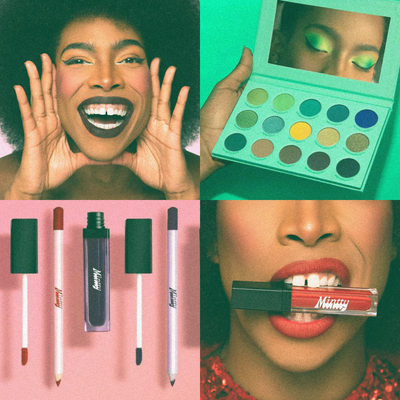You can’t talk about beauty without sleep. From the beginning of time, man has relied on deep sleep as a vital part of good health and well-being. Studies have shown that sleep affects growth and stress hormones, heals, boosts the immune system, and more. But experts are now seeing just how little sleep or “good sleep” millennials and Gen Z are getting from their own lifestyles. Said disruption of sleep is why we’ve partnered with hims, an all-encompassing wellness brand for men, to launch our first SLEEP WEEK. Among hair, sex, skin, mouth products, hims launched sleep gummies. Together, we’re bringing you an entire week of stories that are all about achieving your best sleep – ever. From influencers sharing their best sleep tips, to the science behind sleep, to the best products before bed and more, we’ve rounded the best info to get you zZz-ing asap ?.
My brain likes to eat YouTube videos at night like my stomach eats Hot Cheetos. Voraciously.
Which is interesting because in the daytime my brain doesn’t make a single peep. He’s silent. The consequences are, for a lack of a better word, adorable. For instance, yesterday, when I waved my best friend Jeff goodbye he blurted out that his name was actually Matt. This morning, I sleepily asked for an iced latte with oat milk as my barista explained that taco stands didn’t serve coffee. And then later, I found myself feverishly downloading Find My iPhone while I was on … my iPhone.
I’ve concluded that this lapse of thinking in the daytime has everything to do with my lack of proper sleep at night. That is, going to bed after watching mukbang videos until 2 in the morning and waking up five hours later. It’s not healthy and definitely not adorable.
SEE ALSO: Belif’s Aquabomb sleep mask will moisturize you while you snooze
It’s what I’ve discovered experts referring to as “bad sleep hygiene.” AKA poor sleeping habits that can snowball into bigger problems. And I’m far from being alone. According to the CDC (Center of Disease Control) 1 in 3 Americans don’t get enough sleep (at least 7 hours). Which is why Americans like me are desperate to find solutions. From night creams, CBD oils, bed sheets, mattresses, sleep tech, and more we’ve helped balloon the business of sleep into a a $28 billion annual industry.
While everyone knows humans need sleep, we still don’t quite understand why. There haven’t been conclusive studies explaining why humans need rest every night other than explaining what happens when we don’t get enough zZz’s.
“Humans deprived without sufficient sleep suffer in cognition, behavior and physical help,” Dr. Sally L. Davidson Ward, associate professor of pediatrics at the Kecks School of Medicine at USC, tells me. “It’s interesting because though we know that humans need 8 hours of rest a night we don’t exactly understand why.”
Snoozing is the best way to clean house and hit reset, explains Dr. Susheel Patil, from Johns Hopkins Sleep Medicine.
“Sleep is clearing out by products we produce so we’re ready for the next day,” he tells Very Good Light. ” Our brain is fascinating as it can handle information in different ways, get rid of things that aren’t important and remember things that are. But that all comes from eight hours of sleep.”It’s also the one thing we can all do to promote health.“Sleep is not affected by socio-economics, where you live or who you are – we all can sleep,” Dr. Ward says.That is, unless you’re addicted to your blue light-emitting glass screen. That takes a little effort.From an entire month of research and interviews, I found very useful information to help me get me better sleep. This entire week, with our partnership with hims, we’ll be publishing the best info for you to go out like a light.
Here’s what I’ve learned: 8 is the magic number.
While infants to teens need more sleep and older adults need less, most people need around 8 hours a day, says Dr. Ward. Research finds that young brains are quickly developing and need enough sleep to support growth. From research in sleep, 8 hours seems to be the healthiest number for adults. “I’d say 8 hours is good but you can get 7 hours and still function optimally,” Dr. Patil says. So if you’re feeling a little off when you wake up you’re either getting too much or too little. To remedy this, track your sleep – and sleep and wake up on a schedule.
Our sleep patterns completely changed after the Industrial Revolution
Thanks to inventions like Thomas Edison’s light, our sleep patterns have drastically changed from humans living hundreds of years before us. According to History, Western civilizations used to wake and sleep according to the sun. People still got their 8 hours of sleep, but it was in two sleep cycles.
“As scholar Roger Ekirch uncovered through his exhaustive historical study of literature, art, and diaries, people would once head to bed when it got dark, sleep for four hours, wake for a while, and slide into a ‘second sleep’ for another four hours. People didn’t just toss and turn along in between their two sleep sessions: they would contemplate their dreams, read by candlelight, or have sex.”
It was only until the invention of light, installed in people’s homes, that this changed. And thanks to school and jobs – and the invention of alarm clocks that ensured people woke up at the right time – society encouraged the practice of sleeping through the night. Yet, sleeping in this biphasic model is closest to the “natural” way of human sleep.
There’s a perfect temperature for sleep
When we sleep, our bodies produce heat throughout the night, says Dr. Patil. That means that if it’s too warm, your body will wake up as the temperature will affect your circadian rhythm. Too cold of a room and you’ll shiver, the trembling waking you up. The perfect temperature then, is 65-degrees. Not too cold but cool enough to keep you asleep.
Your brain is smarter than you think
If you associate your room as a place of sleep, your brain will remember that and have better time sleeping in it, says Dr. Ward. But if you use your bed for other activities – watching television, being on your phone, working – your brain will think that is a place outside of sleep. It’s important, then, to ensure that your room is only for sleeping.
There are four stages of sleep
There’s REM (rapid eye movement) and non-REM sleep. The former is sleep where your eyes move quickly in different directions as your brain is typically dreaming and your muscle tone is inhibited with only the diaphragm continuing the breathe. You first go into a non-REM sleep, then a shorter REM sleep, then it continues throughout the night. Each stage is essential to get good rest and takes a certain amount of time to get from one to the other. This is why it’s very important to get your 8 hours of zZz’s.
NREM Stage 1: You’re in a light sleep. This lasts for 5-10 minutes.
NREM Stage 2: Your heart rate starts to slow and your body temperature drops. Your body gets ready to get into a deep sleep.
NREM Sleep 3: This is a deep sleep stage where it’s more difficult to get roused. It’s in this stage when you’re suddenly woken that you feel completely disoriented. During this stage your muscles relax, your blood pressure drops and you’re in your deepest sleep through the night. This is where your bones, muscles and cells are repaired and essential to your mind and body’s well-being.
REM Sleep 4: Have vivid dreams – or nightmares? Yes, this is from your REM sleep. It’s where your eyes move rapidly (which is kinda creepy if you think about it??) and when your brain becomes more active. Studies show that 20% of sleep is in REM. “It’s normal to et 3-5 REM cycles per night,” says Dr. Patil. He also says REM happens more in the second half of the night. Some of your best ideas come from your dreams, so rest, REM it up, and repeat.
Your brain is smarter than you think
If you make your room into anything other than your sleeping sanctuary, your brain will note that. So says Dr. Wade, who tells me that it’s essential that you use your room only for sleep. It’s what adds to good sleep hygiene, she says. “A bedtime routine that’s predictable and at the same time each night cues the brain and lets it know that it’s time to calm down,” she says. “Bedtime habits trigger your brain that it’s time to rest, including: brushing your teeth, sleeping in a cool, dark room, wearing your pajamas. If your sleep environment is anything other than that: texting, homework, eating, television, your brain will not associate it with sleep.” Dr. Ward says that untethering from your phone, computer and all electronics is essential. If you need some entertainment, read a book or magazine. For those of you who don’t know what the latter is, it’s a live iPad.
So what’s REALLY the tea on your iPhone before bed?
The real tea, sis? Blue light before bed is NOT it. Any light in general makes it harder to sleep, says Dr. Patil. In a study by Harvard University’s Dr. Czeisler, iPhone use shirted one’s underlying circadian rhythm and suppressed melatonin production. That means that that your body isn’t ready for bed and your brain doesn’t want to shut off, Dr. Patil says. “Your circadian rhythm goes along with the light to dark cycle from the sun,” says Dr. Ward. “There are certain wavelength blue light signals from the eyes that tell the brain it’s time to be awake.”
A quick (but painful) solution: Dr. Ward says to charge your phone in a different room so that you’re not tempted to check it before bed or if you awake in the middle of the night. “Unplugging allows our brain to unwind and relax for bed.” It may seem impossible, but if you feel you’re not getting your best sleep – try it for a week.
Can’t sleep? Get out of bed.
We’ve all been there before. There’s an important meeting and you have to get up super early. And so you put pressure on yourself to sleep. This leads you to actually not being able to sleep. Stress leads you to look at your clock every 20 minutes, further stressing you out. Been there? We all have. A solution? Get out of bed.
Dr. Patil says that the longer you toss and turn, the less likely you’ll actually fall asleep. The quick solution is to go into another room, do something mundane (read, fold laundry, stretch) and come back when you’re feeling better.
If your inability to sleep is serious, like insomnia – well, that’s another story. For that, seek professional help, Dr. Patil suggests.






